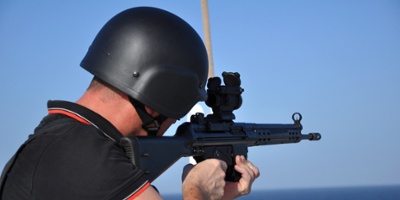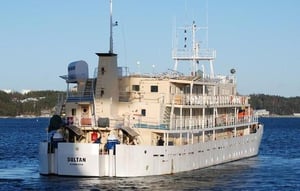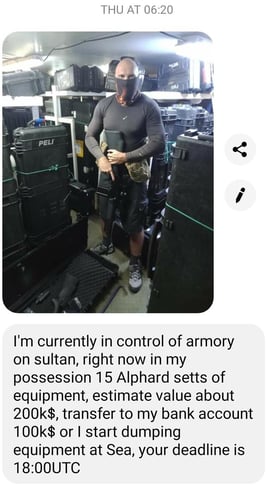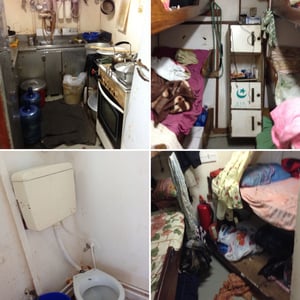7 min read

Vessel Protection: Armed Guard Due Diligence checklist
Why is it important to complete a due diligence checklist?
For each voyage, the decision to engage a PMSC is an operational one, which should be based on a bespoke voyage-specific risk assessment. Due diligence in the selection of a private maritime security company (PMSC) is indeed able to be conducted upstream of such a requirement but should be thorough and potentially revisited in part if their engagement is deemed necessary.
Read our due diligence checklist.
Case study: Private Maritime Security Company (PMSC) Alphard

In two separate incidents in July and August 2020 a Ukranian private maritime security contractor working for PMSC Alphard hijacked two vessels and their crew in a dispute over working conditions and pay.
Eagle Bulk Jaeger Supramax
On July 21, the Jaeger bulk carrier embarked three security guards in the Indian Ocean before sailing towards the Red Sea, a transit through the High Risk Area (HRA) that the Eagle Bulk company has completed for all transits for over ten years.
Reporting from Splash247 detailed the incident:
“Once on board, one of the guards did not surrender his weapon to the vessel’s captain as is normal protocol, and then took control of and deviated the ship from its course as he voiced his grievances and demanded compensation over late salary payments owed by his private security firm. While the guard discharged his weapon onboard the vessel, at no time did he directly threaten or harm any of the crewmembers. The remaining two guards did not participate in the action.
Eagle Bulk, in coordination with maritime security experts, worked to deescalate the situation and after approximately three days, the guard surrendered his weapon and allowed the ship to continue on its original course. Relevant authorities were kept appraised throughout the incident, and the guard was disembarked on Thursday night”.
Golden Palm
On August 21st, the same disgruntled Ukranian still working for private maritime security company Alphard, broke into the armoury onboard the Golden Palm, operated by Spain’s Palm Charters, and took the crew hostage again in his fight over back pay. The tense stand-off aboard the floating armoury in the Red Sea was resolved without incident. 
The Ukranian guard had been stuck at sea for over 5 months, without pay and with no prospect of relief. Although a grievous criminal act, the circumstances evidently drove him to desperation.
The Eagle Bulk and Golden Palm incidents aren’t isolated, they are just underreported in the public domain. What the PMSC’s are facing is a pressure cooker of factors that are putting unacceptable levels of pressure on crew and guards.
The challenges faced by Private Maritime Security Companies
The incidents onboard the Eagle Bulk and Golden Palm shine a light on the desperate working conditions faced by some private maritime security personnel.

PMSCs continue to offer dangerously low prices for the contracting of their guard services which has a knock-on effect for its employees. Ship operators have a duty of care to ensure that the PMSC they select to contract for their transit security requirements maintains the highest standards in relation to seafarer's welfare and industry best practice.
Related Posts
Guidance on Ship Protection Measures against crime
BMP5 provides Ship Protection Measures (SPM) based on real-life experience of piracy attack and..
Best Management Practice BMP5 Anti Piracy Measures
Best management practices 5 (BMP5) is the fifth version of a set of guidelines intended to deter..
Guidance for when ships come under attack BMP
There are some fundamentals to that form the basis of a good response to an attack by illegal..




